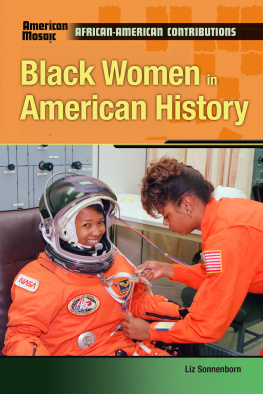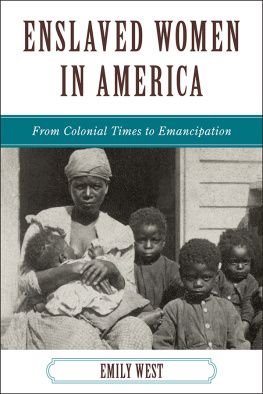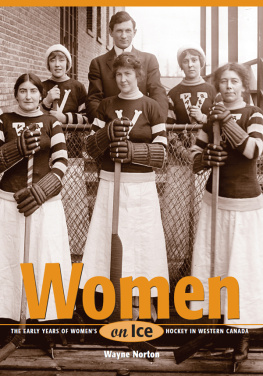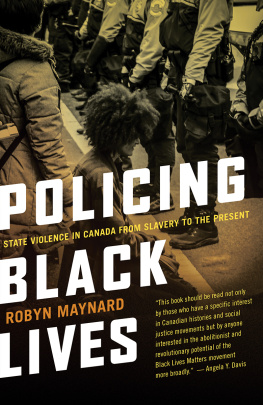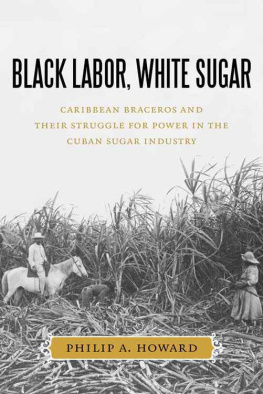UNYIELDING SPIRITS
CROSSCURRENTS IN AFRICAN AMERICAN HISTORY
VOLUME 6
GARLAND REFERENCE LIBRARY OF SOCIAL SCIENCE
VOLUME 1397
CROSSCURRENTS IN AFRICAN AMERICAN HISTORY
GRAHAM RUSSELL HODGES AND MARGARET WASHINGTON, Series Editors
WRITINGS ON BLACK WOMEN OF THE DIASPORA
History, Language, and Identity
by Leantin L. Bracks
THE SLAVES OF LIBERTY
Freedom in Amite County, Mississippi, 18201868
by Dale Edwyna Smith
BLACK CONSERVATISM
Essays in Intellectual and Political History
edited by Peter Eisenstadt
MOVING ON
Black Loyalists in the Afro-Atlantic World
edited by John W. Pulis
AFRO-VIRGINIAN HISTORY AND CULTURE
edited by John Saillant
UNYIELDING SPIRITS
Black Women and Slavery in Early Canada and Jamaica
by Maureen G. Elgersman
First published by Garland Publishing, Inc.
This edition published 2013 by Routledge
| Routledge | Routledge |
| Taylor & Francis Group | Taylor & Francis Group |
| 711 Third Avenue | 2 Park Square, Milton Park |
| New York, NY 10017 | Abingdon, Oxon 0X14 4RN |
Routledge is an imprint of the Taylor & Francis Group, an informa business
Copyright 1999 by Maureen G. Elgersman
All rights reserved
Library of Congress Cataloging-in-Publication Data
Elgersman, Maureen G.
Unyielding spirits : Black women and slavery in early Canada and Jamaica / by Maureen G. Elgersman.
p. cm (Garland reference library of the humanitites : vol. 1397. Crosscurrents in African American history; v. 6)
Includes bibliographical references and index.
ISBN 0-8153-3229-7 (hardcover : alk. paper)
1. Women slavesCanadaHistory17th century. 2. Women slavesCanadaHistory18th century. 3. CanadaHistoryTo 1763 (New France) 4. Afro-American womenCanadaHistory17th century. 5. Afro-American womenCanadaHistory18th century. 6. Women slavesJamaicaHistory18th century. 7. Women slavesJamaicaHistory18th century. 8. JamaicaHistoryTo 1962. 9. Afro-American womenJamaicaHistory17th century. 10.
Afro-American womenJamaicaHistory18th century. I. Title.
II. Series: Garland reference library of the humanities : vol. 1397.
III. Series: Garland reference library of the humanities.
Crosscurrents in African American history; v. 6
F1035.N3E44 1999
971'.00496dc21 99-11762
CIP
To Mom and Dad,
my best teachers
Contents
In the past thirty years, scholars in the field of African American studies have produced some of the most compelling and original books in American letters. Research on black leadership, labor, community, resistance, and intellectual tradition has blossomed into a field of inquiry of paramount importance. There has been a steady increase in historical scholarship, with younger academics reaching out in new directions and using innovative methodologies such as race and gender analysis. In works on all eras of American history, from each region of the country and even abroad, scholars today carry on the vigorous pursuit of knowledge and analytic interpretation that has always characterized African American studies.
Crosscurrents in African American History is a new series that aspires to publish the best and most recent research in the field. Garland Publishing is proud to present distinguished books that offer contemporary interpretations of the black experience in the United States. The topics in the series have been carefully chosen to fulfill this mission and to advance our knowledge of this critical field. Now and in the future, Garland will publish volumes that create new paradigms in African American historical scholarship, while resting securely on the accomplishments of established work in black studies.
Graham Russell Hodges
Margaret Washington
Writing this book has been an important endeavor. I remember calling a prestigious Canadian library and requesting information about sources on slavery, only to be told that there had been no slavery in Canada. This suggested that some Canadians labor under the false assumption that somehow Canada, because of some combination of climate, limited population, or Christian morality, had opted not to engage in the slave trade. The response received when Americans were surveyed was not much different. The myth of Canada as haven and the idea that Blacks first came to the colony as refugees from southern slavery persist in the minds of many Canadians and Americans alike.
I have also noted that slavery in Canada had, with a few dramatic exceptions, been constructed in a patriarchal model. Historio-graphically, concern with the legal debates surrounding the introduction and abolition of slaverya largely male domainhas significantly overridden critical consideration of how the intersections of race, gender, and class informed the slave experience in Canada. The exploitation of Black womens productive and reproductive labor in Canada, and how this configuration might have been a feature that distinguished the colony from other British possessions are important areas to be explored. The growing scholarship on Black Canadian women still lacks a extensive, feminist assessment of Black women in slavery. In a more fundamental way, this study is designed to get more people thinking and writing about Black women enslaved in colonial Canada as part of the fabric of the history of the country and of the African diaspora. Thus, I offer this work, as study and symbol, to that growing school of scholarship that is naming the experiences of Black women and reclaiming them from historical anonymity.
What also made this work important was being able to help build a historical and theoretical bridge between the history of Black women enslaved in Canada and those in Jamaica. While seemingly a case of apples and oranges, Black women in these two areas were separated by geography, climate, monocrop production, and economic scale, but were linked by greater things. They were linked by the British empires complicity in their chattel status, that of their children, and its sanction of the exploitation of Black womens bodies in field labor, domestic work, and childbearing.
The essential purpose of this study, therefore, is to explore the enslavement of Black women in early Canada, the configuration of the exploitation of Black women as productive and reproductive laborers, and their resistance to their imposed chattel status. It is important to consider the history of Black women in Canada with others in the African diaspora, and I use Jamaica as the model of the British Caribbean with which to compare and contextualize the Canadian experience. Concurrently for over seven decades, from 1763 to 1834, Canada and Jamaica were British possessions that recognized the legality of slavery and that sanctioned the exploitation of Black women as productive and reproductive laborers according to the needs of the respective slave societies. Differences in climate, geography, and crop production aside, Black women in both places were considered chattel, the exploitation of their productive labor was legally recognized, and the reproductive labor that could help stabilize or increase the slave population was encouraged or discouraged according to the needs of the slave societies. While differences in the importance and appropriation of Black womens productive and reproductive labor are significant features in these histories, planters and legislators belief in their fundamental right to manipulate these labors according to their needs must be recognized as a critical connection between Black women in these places.


